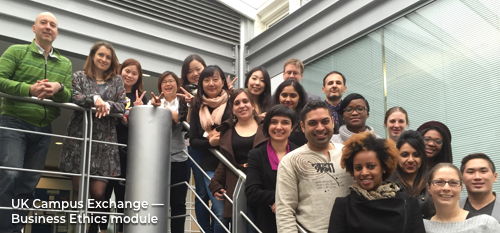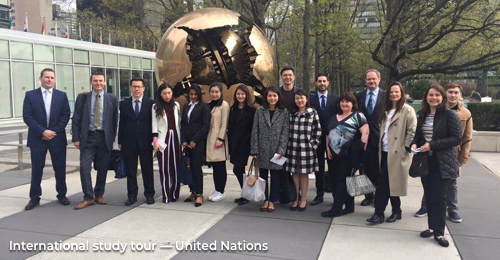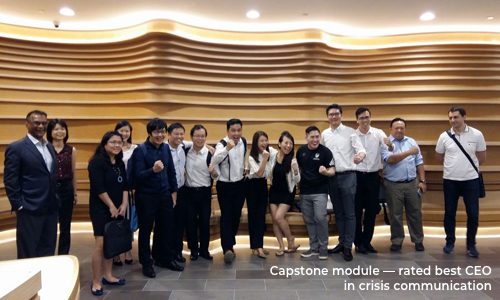I am delighted to be asked by PSB Academy’s School of Postgraduate Studies to share my thoughts on the currency of the Nottingham MBA in today’s intensifying complex and tense economic environment. I see two pivotal ways in which the Nottingham MBA sustains salience and fortifies resilience in tomorrow’s workforces.
Agility — VUCA in the Grave New World
“In terms of the business world, 2022 offers up a multitude of risk scenarios, headlined by the third year of the coronavirus (COVID-19) pandemic, the effects of climate change – the latter viewed by many as the biggest long-term threat facing humanity – and the escalating impact of the Russia-Ukraine conflict.” — Financier Worldwide Magazine
“Most respondents instead expect the next three years to be characterized by either consistent volatility and multiple surprises or fractured trajectories that will separate relative winners and losers.” — World Economic Forum Global Risks Report 2022

Fresh from a pandemic that necessitated radical shifts in business models to meet new customer and employee needs, businesses once again find themselves having to pivot and prevail against shocks to the global economy. MBA graduates will be familiar with management strategies in a VUCA world. This is of course no panacea for the turmoil markets are in now, nor is an MBA an endorsement of leadership competence. However, both for-profits and non-profits are in dire need of leaders who are formally educated in management best practices and can help forge the way onward. Today’s challenges and tomorrow’s complications call for thought leaders who can move and inspire the rest of the organisation forward.
The MBA was created in a different era, a century ago during the rapid industralisation of the US economy. First taught at Harvard, business schools sought to formally train a new type of workforce in management best practices to enhance productivity. Today’s MBA retains the enduring hallmark of putting students in the shoes of the chief decision maker, facing real-world challenges with limited information and having to think fast on their feet to make critical decisions that will decide the future of their businesses.

Sustainability — Tomorrow’s Security, Today’s Corporates
The world has transmogrified since the pandemic. Workers are no longer content to work 9-5 in a cubicle and consumers have become more discerning (and demanding) of environmental and ethical practices. Now, more than ever, there is a growing imperative for businesses to develop brand narratives that encompass not just their value to customers, but value co-creation for the common good. Today’s environmental and social values increasingly drive economic value creation, and stakeholders demand transparency and accountability in measurable value. Enterprises that understand their place in the communities they serve and communicate their stewardship will be recognised and rewarded for their responsible leadership.
Business as a driving force for societal good is not a new concept. The UN Global Compact was launched in 2000 to unite corporates and the United Nations in upholding and integrating ethical and environmental principles in commercial practices. This in turn birthed the Principles for Responsible Management Education (PRME) to raise the profile of sustainability in business schools and equip future captains of industry to deliver change for tomorrow’s security. The UN Sustainable Development Goals (SDGs) are today the most recognisable international framework for a better future on where the world needs to go.

A PRME Champion, the Nottingham University Business School is a global thought and action leader in the space of responsible management education. The Nottingham MBA consistently appears in the Corporate Knights ranking of the world’s top sustainable MBA courses. In its A Tri-Campus SDG Footprint 2021 report, Nottingham mapped out how its research centres and institutes are actively and widely contributing to SDG solutions. This includes the Business School’s International Centre for Corporate Social Responsibility, one of the largest and most influential centres of its kind.
In the Nottingham MBA‘s capstone module Sustainable Decisions and Organisations, students take on C-suite roles in teams and develop a comprehensive, sustainable strategy for a selected company that aligns both financial and sustainable impacts. Students will face a panel of judges with real-world experience in the boardroom. They will also be given a scenario where the company’s reputation will come under fire for its ethical practices, and the designated Chief Executive Officer will be assessed for their crisis communication and media handling skills before another panel of judges made up of journalists and media professionals.

Jeremiah Barnabas is a brand and communication professional and educator, with a keen interest in elevating brand equity by connecting corporate narratives with community commitments. He studied the Nottingham MBA from 2016–2018 and graduated top of his class with an MBA in Corporate Social Responsibility. This article is written in his personal capacity.

 TOP
TOP